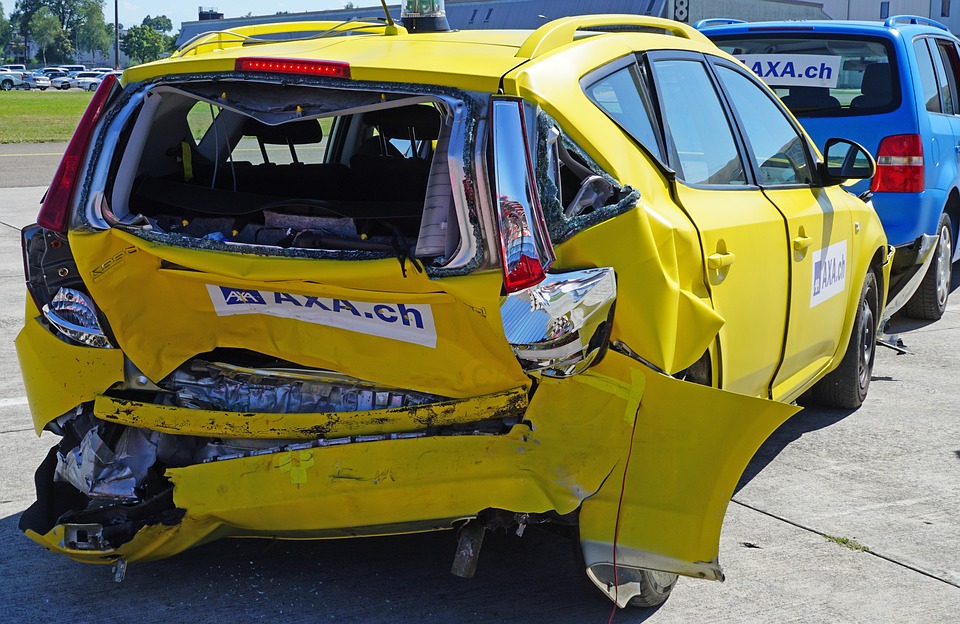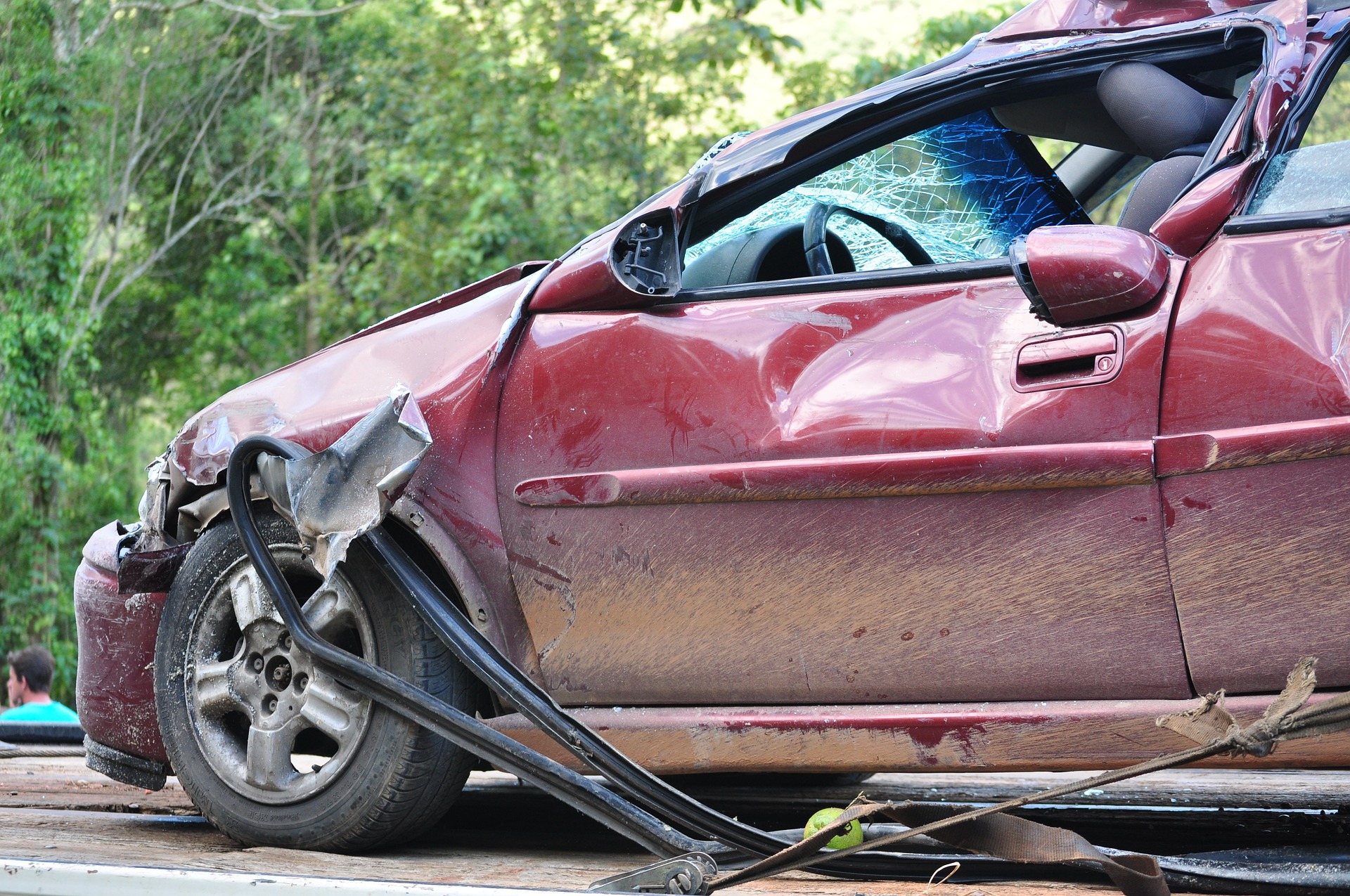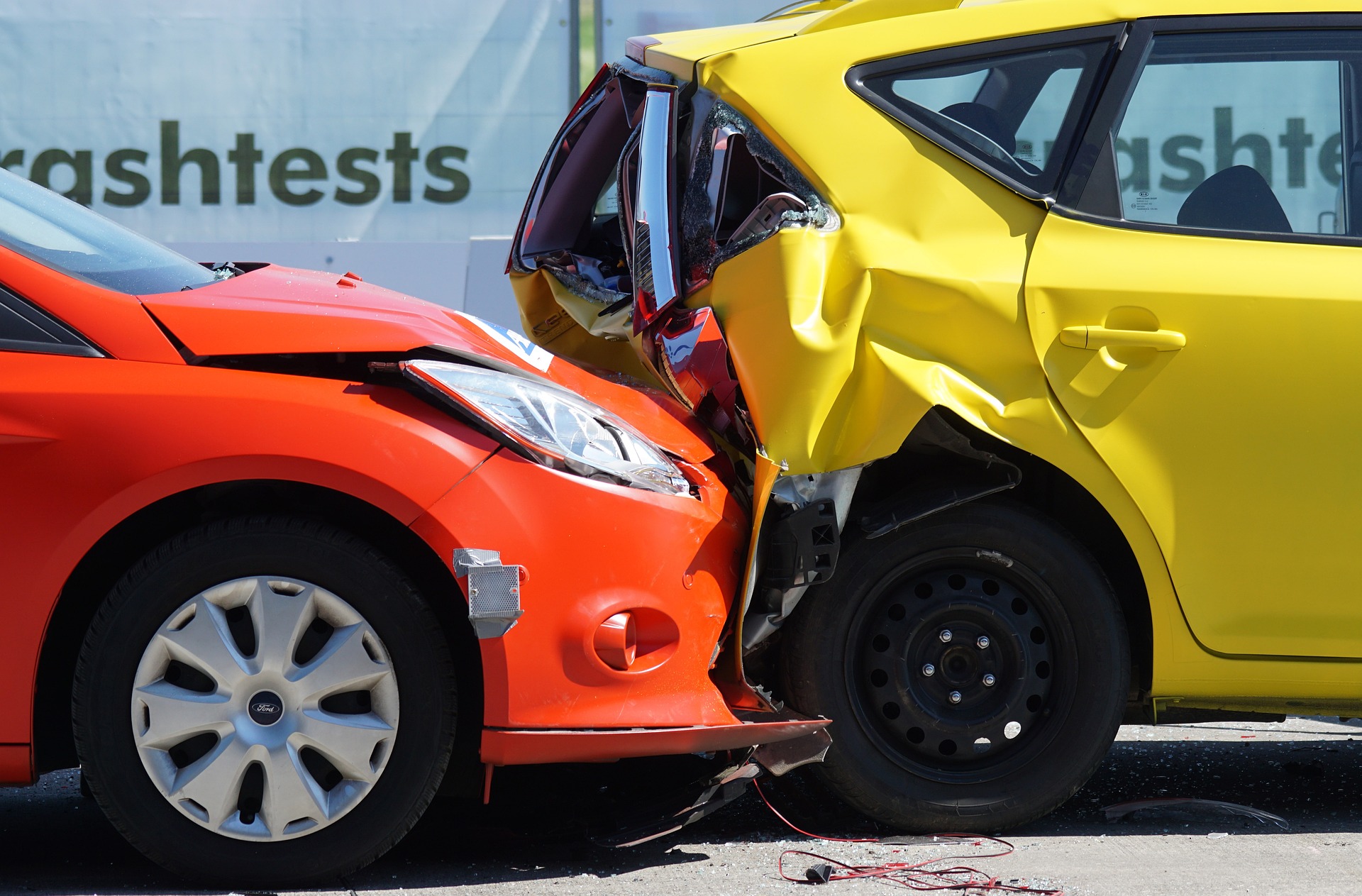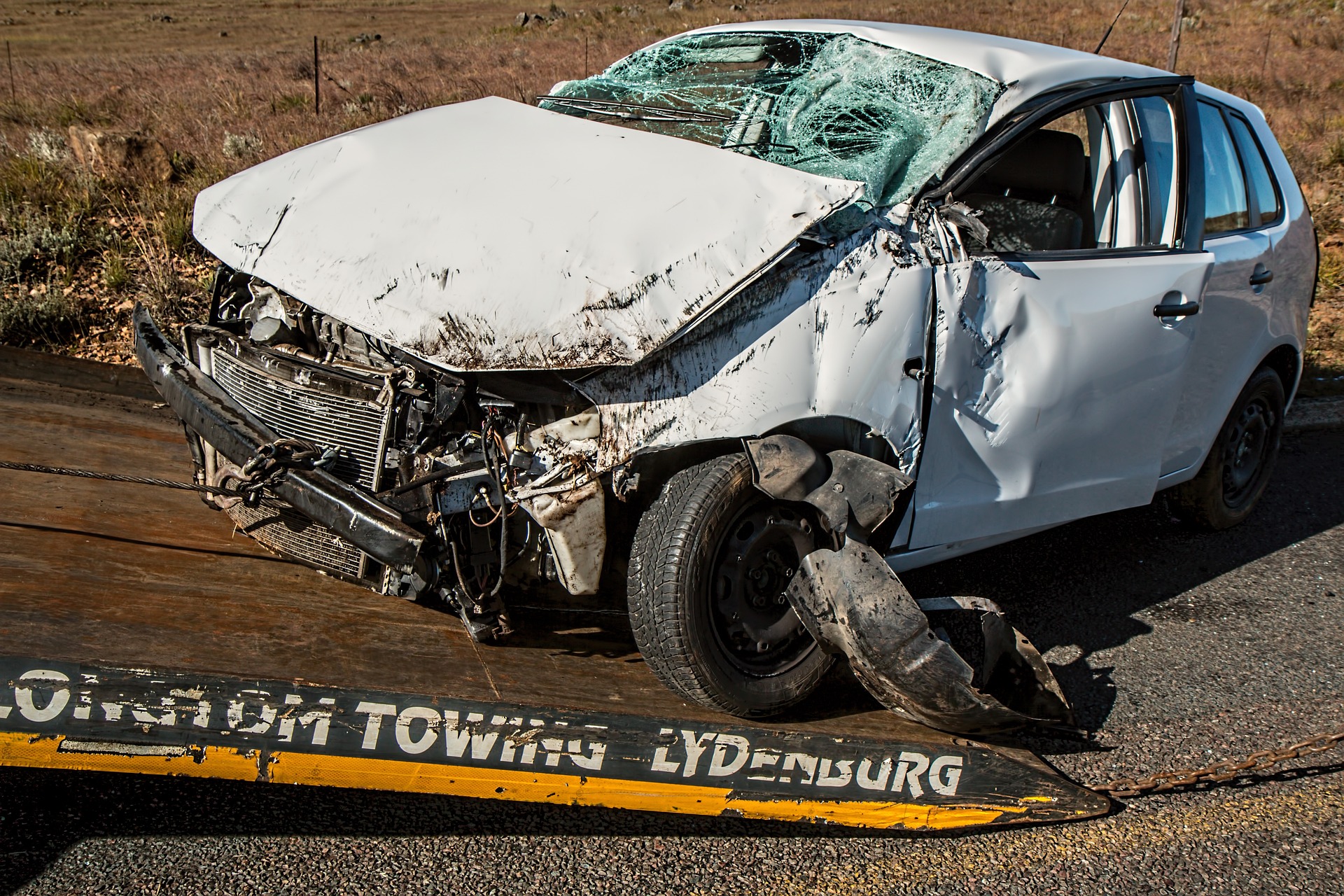Highway accidents are one of the most common and dangerous types of traffic crashes. They can cause serious injuries, fatalities, and property damage. According to the National Highway Traffic Safety Administration (NHTSA), 38,824 lives were lost in traffic crashes nationwide in 2020, the highest number since 2007. Road traffic injuries are also the leading cause of death for children and young adults aged 5-29 years.
If you are involved in a highway accident, you may feel shocked, scared, or confused. However, it is important to know what to do after a highway accident to protect yourself and your rights. Here are some steps you should take after a highway accident:
1. Stop and check for injuries
- The first thing you should do after a highway accident is to stop your vehicle and check for injuries. Never drive away from the scene of an accident, even if it is minor. This is illegal and can result in criminal charges.
- If you or anyone else is injured, call 911 immediately and request medical assistance. Do not move anyone who is seriously injured unless they are in immediate danger. Moving them could worsen their injuries or cause spinal damage.
- If you are not injured, check on the other drivers and passengers involved in the accident. Offer help if you can, but do not admit fault or apologize for anything. This could be used against you later by insurance companies or lawyers.
2. Move to a safe location
- If your vehicle is drivable and there are no serious injuries, move it to a safe location away from traffic. This will prevent further collisions and reduce the risk of fire or explosion. If your vehicle is not drivable, turn on your hazard lights and set up flares or cones if you have them.
- If possible, move to a shoulder, median, or exit ramp where you can wait for help. Do not stand in the middle of the road or near moving vehicles. Stay inside your vehicle with your seat belt on if it is safe to do so.
3. Call the police
- Even if the accident is minor, you should call the police and report it. The police will document the scene, interview witnesses, and issue citations if necessary. They will also provide you with a police report number that you will need for your insurance claim.
- When the police arrive, cooperate with them and answer their questions honestly. However, do not admit fault or make any statements that could implicate you. For example, do not say “I’m sorry” or “I didn’t see them”. Instead, say “I don’t know” or “I’m not sure”.
- If the police do not come to the scene, you should go to the nearest police station and file a report yourself as soon as possible.
4. Exchange information
- While you are waiting for the police, you should exchange information with the other drivers involved in the accident. You should get their name, address, phone number, driver’s license number, license plate number, insurance company name and policy number.
- You should also get the contact information of any witnesses who saw the accident. They may be able to provide valuable testimony later if there is a dispute over liability or damages.
- Do not discuss the details of the accident with anyone except the police and your insurance company. Do not accept any offers of settlement or sign any papers without consulting a lawyer first.
5. Take pictures
- If you have a camera or a smartphone, you should take pictures of the scene of the accident. This will help you document the damage to your vehicle and any other vehicles involved, as well as any injuries or skid marks.
- You should also take pictures of any relevant road signs, traffic signals, weather conditions, or other factors that may have contributed to the accident.
- These pictures can serve as evidence for your insurance claim or lawsuit later.
6. Seek medical attention
- Even if you feel fine after the accident, you should seek medical attention as soon as possible. Some injuries may not show symptoms right away but could become worse over time. For example, whiplash, concussion, internal bleeding, or brain injury.
- A doctor will examine you and treat any injuries you may have. They will also provide you with a medical report that will document your condition and treatment. This report will be important for your insurance claim or lawsuit later.
- Keep all receipts and records of your medical expenses and follow-up visits.
7. File an insurance claim
- After a highway accident, you should file an insurance claim as soon as possible. Depending on the state where the accident occurred and the type of insurance coverage you have, you may file a first party claim with your own insurance company or a third party claim with the other driver’s insurance company.
- To file an insurance claim, you will need to provide information about the accident, such as the date, time, location, police report number, and other driver’s insurance details. You will also need to provide evidence of your injuries and damages, such as medical records, bills, receipts, photos, and witness statements.
- The insurance company will assign an adjuster to your claim, who will investigate the accident and determine liability and compensation. The adjuster may contact you to ask questions, request documents, or offer a settlement. You should cooperate with the adjuster but do not accept any offer without consulting a lawyer first.
- If you are not satisfied with the insurance company’s offer or if they deny your claim, you may have the option to appeal their decision or file a lawsuit against them.
8. Consult a lawyer
- Highway accidents can be complex and involve multiple parties, laws, and insurance policies. If you have suffered serious injuries or damages, or if you are facing a dispute over liability or compensation, you may benefit from hiring a lawyer to represent you.
- A lawyer can help you understand your legal rights and options, gather evidence and witnesses, negotiate with the insurance companies, and file a lawsuit if necessary. A lawyer can also help you calculate the value of your claim and seek the maximum compensation you deserve.
- Most personal injury lawyers work on a contingency fee basis, which means they only get paid if they win your case or obtain a settlement for you. You should look for a lawyer who has experience and expertise in handling highway accident cases like yours.
9. Follow up and keep records
- After a highway accident, you should follow up with your doctor and your lawyer regularly. You should follow your doctor’s advice and treatment plan to recover from your injuries and prevent any complications. You should also keep track of your medical appointments and expenses.
- You should also keep in touch with your lawyer and update them on any changes in your condition or situation. You should keep copies of all documents related to your accident and your claim, such as police reports, medical records, bills, receipts, correspondence, and settlement offers.
- You should also keep a journal of how the accident has affected your life, such as your physical pain, emotional distress, lost income, reduced quality of life, and any other losses or damages. This can help you document your suffering and support your claim for non-economic damages.
10. Be patient and realistic
- Highway accidents can be traumatic and stressful events that can have lasting impacts on your health, finances, and well-being. However, you should be patient and realistic about the process of recovering from your injuries and obtaining compensation for your damages.
- The process of filing an insurance claim or a lawsuit can take time and involve many steps and challenges. You may face delays, disputes, or denials from the insurance companies or the other parties involved. You may also face legal hurdles or complications that could affect the outcome of your case.
- You should not expect to receive a quick or easy settlement or verdict that will cover all your losses or damages. You should be prepared to negotiate with the insurance companies or go to trial if necessary. You should also be aware of the risks and costs involved in pursuing legal action.
- You should work with your doctor and your lawyer to achieve the best possible recovery and resolution for your case. You should also seek support from your family and friends to cope with the emotional and psychological effects of the accident.
Conclusion
Highway accidents can be devastating events that can cause serious injuries and damages. If you are involved in a highway accident, you should know what to do after the accident to protect yourself and your rights. You should follow these steps:
- Stop and check for injuries
- Move to a safe location
- Call the police
- Exchange information
- Take pictures
- Seek medical attention
- File an insurance claim
- Consult a lawyer
- Follow up and keep records
- Be patient and realistic
By following these steps, you can increase your chances of recovering from your injuries and obtaining fair compensation for your damages.
Contact a Highway Accident Lawyer for Help
If you have been injured in a highway accident, you may be entitled to compensation for your medical bills, lost wages, pain and suffering, and other damages. However, you may face many challenges and obstacles in pursuing your claim or lawsuit. You may have to deal with multiple insurance companies, conflicting evidence, complex laws, and aggressive defense lawyers.
That’s why you need a highway accident lawyer on your side. A highway accident lawyer can help you:
- Understand your legal rights and options
- Investigate the accident and gather evidence
- Prove liability and causation
- Calculate the value of your claim
- Negotiate with the insurance companies
- File a lawsuit if necessary
- Represent you in court
- Seek the maximum compensation you deserve
An experienced highway accident lawyer can safeguard you against unfair or lowball settlement offers, ensuring you receive just compensation and preventing any attempts to shift blame onto you. Moreover, they possess the expertise to navigate the intricacies of your case, handling all legal aspects diligently, allowing you to prioritize your recovery and well-being.
To find a highway accident lawyer near you, you can use online directories, referrals, or reviews. You should look for a lawyer who has experience and expertise in handling highway accident cases like yours. You should also look for a lawyer who offers a free consultation and works on a contingency fee basis.
A free consultation is an opportunity for you to discuss your case with a lawyer and get their professional opinion and advice. A contingency fee basis means that you don’t have to pay any upfront fees or costs to hire the lawyer. You only pay them a percentage of the recovery if they win your case or obtain a settlement for you.
Don’t wait too long to contact a highway accident lawyer. There are time limits for filing a claim or a lawsuit after a highway accident. These time limits vary by state and by type of case. If you miss the deadline, you may lose your right to seek compensation.
Contacting a highway accident lawyer as soon as possible can also help preserve crucial evidence and witnesses that may disappear or change over time. Contacting a highway accident lawyer early can also help prevent any mistakes or errors that could harm your case.
A highway accident can change your life in an instant. But you don’t have to face it alone. Contact a highway accident lawyer today and get the help you need.
Go Over Your Damages with Your Personal Injury Attorney
One of the most important steps in your highway accident case is to go over your damages with your personal injury attorney. Your damages are the losses or harms that you have suffered as a result of the accident. They can include:
- Economic damages: These are the quantifiable and objective damages that you can prove with bills, receipts, or records. They include medical expenses, lost income, property damage, and other out-of-pocket costs.
- Non-economic damages: These are the subjective and intangible damages that you cannot easily measure or prove with documents. They include pain and suffering, emotional distress, loss of enjoyment of life, and other impacts on your quality of life.
- Punitive damages: These are the rare and exceptional damages that are awarded to punish the wrongdoer and deter others from similar conduct. They are not based on your actual losses, but on the degree of malice, fraud, or oppression involved in the accident.
Your personal injury attorney can help you identify and calculate all the damages that you are entitled to claim. Your personal injury attorney can also help you gather and present evidence to support your claim for damages. This evidence can include:
- Medical records and bills
- Pay stubs and tax returns
- Repair estimates and receipts
- Photos and videos of the accident scene and your injuries
- Witness statements and testimonies
- Expert opinions and reports
- Your own journal or diary of how the accident has affected you
Your personal injury attorney can also help you negotiate with the insurance companies or the other parties to seek a fair settlement for your damages. If a settlement cannot be reached, your personal injury attorney can help you file a lawsuit and represent you in court.
Your personal injury attorney can also advise you on how to deal with any potential issues or challenges that may arise in your case. For example:
- Comparative or contributory negligence: This is a legal doctrine that reduces or bars your recovery if you are partially or fully at fault for the accident. The rules vary by state, but generally, if you are more than 50% at fault, you cannot recover anything. If you are less than 50% at fault, your recovery will be reduced by your percentage of fault.
- Statute of limitations: This is a legal deadline for filing a claim or a lawsuit after an accident. The deadline varies by state and by type of case, but generally ranges from one to six years. If you miss the deadline, you may lose your right to seek compensation.
- Damage caps: These are legal limits on the amount of damages that you can recover in certain types of cases. Some states have caps on non-economic damages or punitive damages in personal injury cases. These caps vary by state and by type of case, but generally range from $250,000 to $500,000.
Going over your damages with your personal injury attorney can help you understand your rights and options, as well as the value and strength of your case. It can also help you prepare for any negotiations or litigation that may follow. Going over your damages with your personal injury attorney can also help you achieve the best possible outcome for your case.
Get Help with Your Highway Accident Claim
If you have been injured in a highway accident, you may be facing a lot of challenges and difficulties. You may be dealing with physical pain, emotional trauma, financial stress, and legal complications. You may be feeling overwhelmed, frustrated, or hopeless.
But you don’t have to go through this alone. You can get help with your highway accident claim with an experienced car accident lawyer. an experienced car accident lawyer can help you:
- Get the medical care and treatment you need
- Get the compensation and justice you deserve
- Get the peace of mind and closure you seek
A personal injury lawyer has the knowledge, skills, and resources to handle any type of highway accident case, such as:
- Car accidents
- Truck accidents
- Motorcycle accidents
- Bus accidents
- Bicycle accidents
- Pedestrian accidents
- Wrongful death accidents



